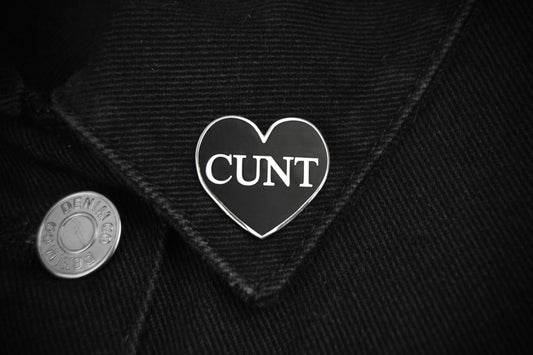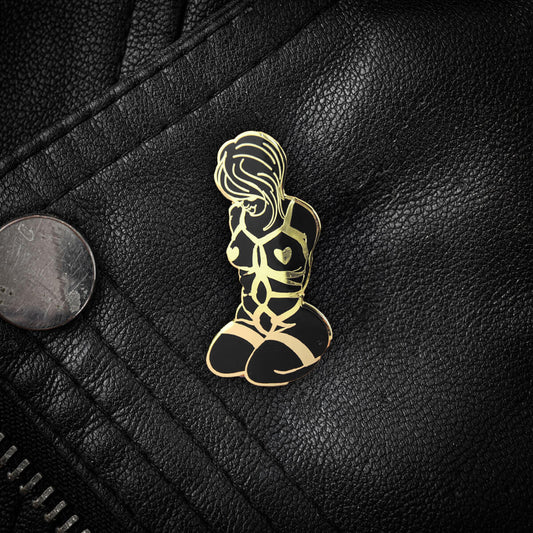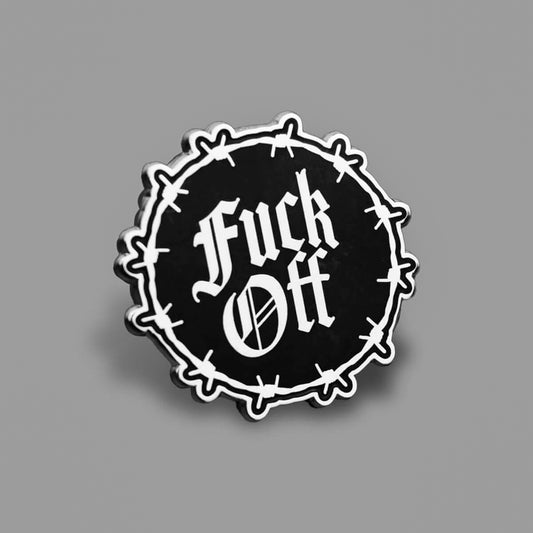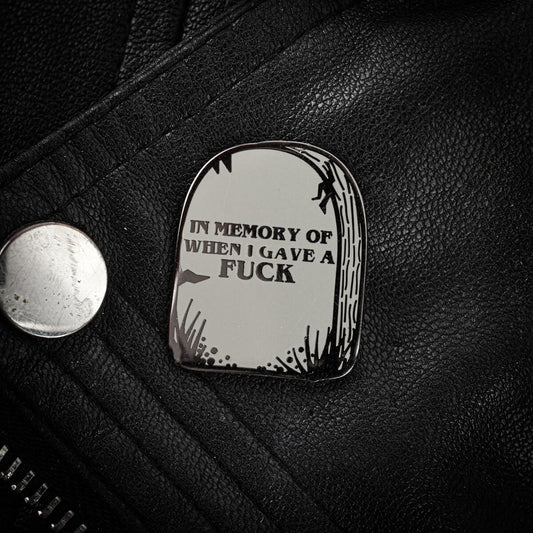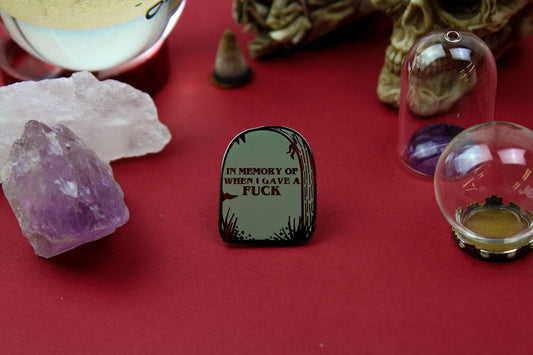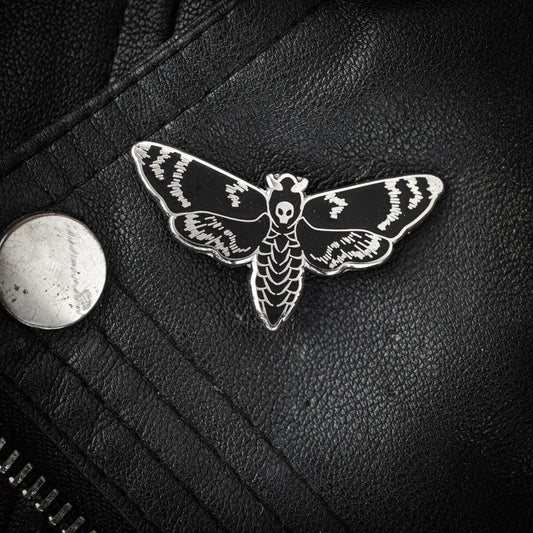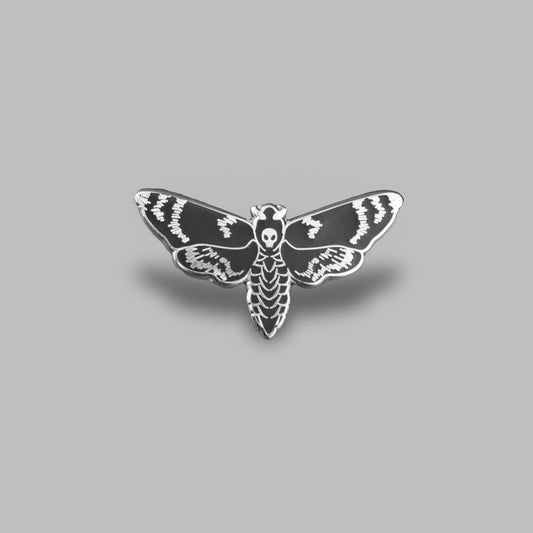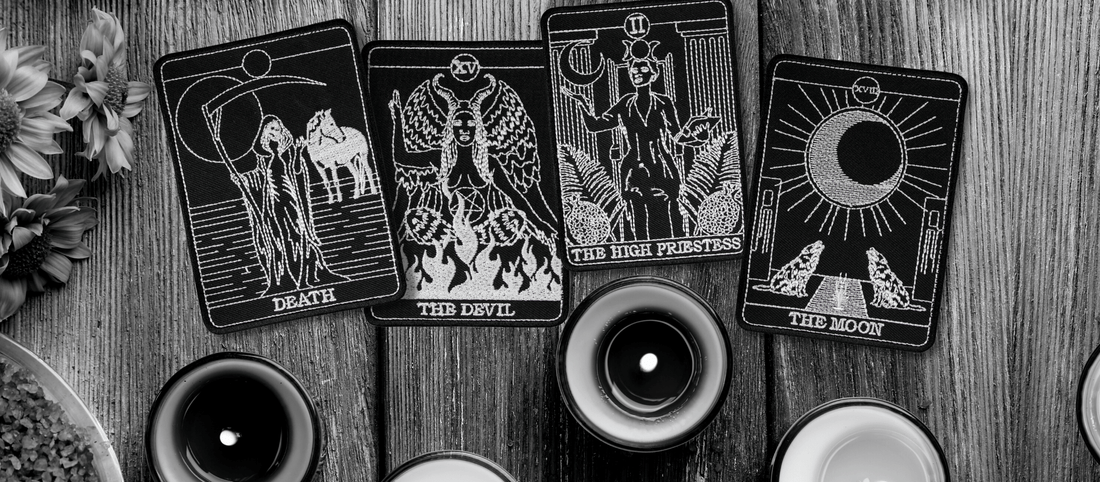
What is the Occult?
Share
Considering taking the left-hand path? Looking to expand your mind and become a better person? You might want to explore occultism!
Covering all kinds of esoteric traditions from spiritualism to theosophy, new age beliefs to the Hermetic Order of the Golden Dawn, taking a deep dive into occult practices may help you with personal transformation, spiritual enlightenment, or a deeper understanding of the universe's hidden dimensions.
Occult Definition
The word ‘occult’ literally means 'hidden' - and this is why most Occult philosophy revolves around hidden knowledge. Alchemy, astrology, and natural magic are the three basic subfields that make up the occult sciences. Occultism may itself, on the other hand, encompass a wide variety of mysterious practices that are neither religious nor scientific.
According to the common conception, in the Western world, occultism involves an ancient secret or hidden philosophy that serves as the foundation for all forms of occultism. It is believed this philosophy originated from the magic and alchemy of the Hellenistic period, and also from the beliefs and mysticism of the Jewish people.
Curious to know more? Find all the answers to your questions here…
Is practising the occult taboo?
During its emergence in the late 19th and early 20th century, the links between occultism, witchcraft and satanism, combined with not conforming to traditional worship of Christianity, meant that a lot of occultists were pushed out to the fringes of society. It was a time where people feared what they didn’t understand, and a lot of alternative lifestyles such as Occultism were considered taboo. However, practitioners of the occult were often actively non-conformist, particularly when it came to christianity. Occultists, unlike earlier esotericists, often openly separated themselves from Christianity, even taking anti-Christian stances. Some occultists turned to pre-Christian beliefs or Modern Paganism, while others drew inspiration from Asian religions like Hinduism and Buddhism. However, as occultist beliefs became more mainstream and alternative religions to christianity became more widespread towards the end of the 20th century and beginning of the 21st, occultism began to be seen as a lot less taboo. Some people associate it with negative stereotypes, superstitions, or potential dangers, but it’s important to remember that it’s actually a harmless form of self-expression, spiritual exploration, or personal growth.
How does occultism differ from other religions?
There are many ways in which Occultism differs from religions. While many religions have structured dogmas and organised institutions, occultism tends to be more individualistic, focusing on personal growth. Practitioners often create their own paths, drawing from various sources and traditions that resonate with them personally. There are no deities, leaders or hierarchies, and occultist activities are often practised in secret rather than in places of worship or public spaces. Occultism should almost be seen as an umbrella term, used to categorise such esoteric traditions as Spiritualism, Theosophy, Anthroposophy, the Hermetic Order of the Golden Dawn, and New Age.
However, it's worth noting that it also influenced new religious movements. For instance, Wicca, Thelema, and various forms of modern Paganism have been influenced by occultism and incorporate its ideas into their belief systems. Additionally, some individuals might approach occultism with a more religious or spiritual mindset, blending it with their own personal understanding of the divine or supernatural.
Who are the most famous occultists?
We've written an entire article on the most famous occultists, but we'll briefly go over them below too.
Madame Helena Blavatsky (1831–1891)
The mother of all things occultism, Blavatsky was known for committing her life to the occult and esotericism. Highly intelligent and incredibly well-read, she was the co-founder of the Theosophical Society, a spiritual and philosophical movement that seeks to explore the nature of reality, divine wisdom, and the interconnectedness of all existence through the study of ancient teachings. She is known for her influential writings, including "The Secret Doctrine," which explored theosophical concepts and ideas related to the spiritual evolution of humanity.

Eliphas Lévi (1810–1875)
It may come as no surprise for anyone to learn that one of the founding fathers of occult theory abandoned the priesthood in his mid-twenties to become a ceremonial magician. Choosing to live his life on the left-hand path, Lévi was a French occultist and writer who is often credited with popularising the notion of the Baphomet (a symbol depicting a human-like figure with a goat's head, wings, and other symbolic elements, representing various little known and mystical concepts) and the concept of "As Above, So Below." He contributed significantly to the development of modern Western ceremonial magic. He greatly influenced the magic of the Hermetic Order of the Golden Dawn and later Aleister Crowley, as well as being the first to propose that a pentagram with one point down and two points up signifies evil, while the reverse symbolises good. Lévi's concepts also impacted Helena Blavatsky and the Theosophical Society.
Dion Fortune (1890–1946)
An influential British occultist and author, Dion Fortune was known for her works on ceremonial magic, occult fiction, and practical teachings. Her novel "The Sea Priestess" is considered a classic in esoteric literature. Her life's journey was characterised by a deep exploration of mystical realms and the uncharted territories of the human psyche. Though she was born in Llandudno, Fortune (her magical name) found her spiritual home at Glastonbury, where she claimed to have received psychic communications from a group of excarnate monks of its famous abbey, who called themselves the Company of Avalon.
Manly P. Hall (1901–1990)
While esoteric teachings were spreading all over Europe, Hall was dedicating his life to all things mystic across the pond. A Canadian author, lecturer, and mystic, Hall founded the Philosophical Research Society and wrote extensively on a wide range of occult and mysterious subjects. His work "The Secret Teachings of All Ages" is a comprehensive overview of esoteric knowledge, but over 70 years he published over 150 volumes and gave thousands of lectures.
Papus (1865–1916)
The pen name of Gérard Encausse, Papus was a French physician and occultist. One of the early members of the Theosophical Society, He was a prominent figure in the French esoteric revival of the late 19th and early 20th centuries and contributed to various aspects of occultism, including Kabbalah, tarot, and magic. While deeply engaged in occultism and various occult groups (including the Hermetic Brotherhood of Light and the Hermetic Order of the Golden Dawn,) Encausse still dedicated time to pursue traditional academic studies at the University of Paris, where he obtained his Doctor of Medicine degree in 1894 by presenting a dissertation on Philosophical Anatomy. Balancing his occult interests, he established a successful clinic in Paris.
Anton LaVey (1930–1997)
Talented calliope player and labelled as "evilest man in the world," LaVey was an American occultist and founder of the Church of Satan. He authored "The Satanic Bible" and was a prominent figure in the modern Satanist movement. The Church of Satan, established in 1966, stands as one of the most well-known modern religious and philosophical movements embracing Satanism. Operating on principles of individualism, personal empowerment, and the celebration of the self, the Church of Satan rejects literal interpretations of Satan as a supernatural entity and instead embraces Satan as a symbol of defiance against oppressive dogmas. Through rituals, writings, and a distinct aesthetic, the Church of Satan has left a lasting impact on the perception of Satanism and the boundaries of religious expression.
Who was Aleister Crowley?

You may have heard Crowley's name a lot when it comes to the occult, but who was Aleister Crowley? Often referred to as "The Great Beast" or "The Wickedest Man in the World," Crowley was a British occultist, writer, and ceremonial magician. He was a key figure in the development of Thelema, a religious and philosophical system that revolves around the pursuit of one's True Will and the belief in spiritual growth through the exploration of magick, self-discovery, and individualism. As well as the teachings of Madame Blavatsky, the prolific writings of Crowley are also seen as staples of occult learning.
Crowley inherited a large amount of wealth from his father, which allowed him to explore the world and expand his mind. During his international travels, he would take part in sex magick rituals, big-game hunting, opium smoking and attempt ambitious mountaineering exhibitions (including K2, the second highest mountain on earth.) These escapades combined with hearing voices, seeing visions and having dreams of Egyptian deities, lead to Crowley writing The Book of the Law, which became the cornerstone of his religion, Thelema.
What is Magick?
Where traditional stage magic creates illusions, tricks, or stage performances that entertain and amaze audiences, magick (also known as ceremonial magic, ritual magic, high magic or learned magic) involves intentional actions, performed to create change, transformation, or influence events through the manipulation of metaphysical energies. Rooted in ancient mystical traditions, ceremonial magic involves the use of hidden knowledge, symbolism, and rituals and was defined by Aleister Crowley as "the science and art of causing change to occur in conformity with will."
Crowley categorised ritualistic techniques in his book Magick: Liber ABA, Book 4 for those who wished to practice -
- Banishing — Banishing rituals are conducted to eliminate disruptive forces from magical operations, often at the outset of significant events; they target designated areas like magic circles or rooms and draw upon the classical elements, planets, Zodiac signs, and astral spaces. Prominent banishing rituals include The Star Ruby and the Lesser Banishing Ritual of the Pentagram, both widely adopted. Crowley recommended that a banishing ritual be done at least once daily.
- Invocation — Involves connecting with a deity or spirits of the dead, perhaps via the use of a Ouija board. Crowley encouraged frequent invocation, with the most crucial being the invocation of one's Holy Guardian Angel to discern true will. Methods of invocations can be categorised in three different ways -
- Devotion — where "identity with the God is attained by love and by surrender, by giving up or suppressing all irrelevant (and illusionary) parts of yourself."
- Calling forth — where "identity is attained by paying special attention to the desired part of yourself: positive, as the first method is negative."(e.g. assumption of godforms)
- Drama — where "identity is attained by sympathy. It is very difficult for the ordinary man to lose himself completely in the subject of a play or of a novel; but for those who can do so, this method is unquestionably the best."
- Evocation — A ritual of gathering information and enlisting the aid or compliance of spirits or demons. It's also viable to evoke angelic beings, deities, and other intelligences connected to planets, elements, and the Zodiac. Unlike invocation's calling in, evocation entails a calling forth.
- Eucharistic ritual — Where food and drink is modified into divine sacraments and then eaten or drank. Most commonly is the Cake of Light which contains kamut flour, honey, Abramelin oil, olive oil, beeswing, ash, and sometimes, bodily fluids.
- Consecration — The active dedication, usually of a ritual instrument or space, to a specific purpose.
- Divination — This serves to gather information guiding the magician’s journey to communicate symbolically and provide insights. It differs from fortune telling, focusing on understanding the nature of things to aid decision-making. Common techniques include astrology (studying the positions of astral bodies,) bibliomancy (reading random passages from a divine book), Thoth Tarot - a deck of 78 cards, each with symbolic meaning, usually laid out in a meaningful pattern) and geomancy (a method of making random marks on paper or in earth that results in a combination of sixteen patterns).
See our full article 'What is Magick?' for more information.
How do occultists use symbolism in their rituals?
Symbols help occult practitioners focus their intent and aid in visualisation during rituals. Visualising a specific symbol can help create a mental and spiritual connection with the concept it represents, enhancing the efficacy of the ritual.
Symbols can also help in occult rituals as -
- Representation of specific concepts
- Connecting to the energetic resonance of the symbol
- Altering the consciousness of the practitioner to allow them communication with other realms
- Establishing a connection with spiritual beings or forces
- Engagement in psychodrama to lead to self-discovery and personal transformation
- Alignment with Cosmic Forces when using symbols related to celestial bodies, elements, and astrological signs.
Some of the most commonly used symbols in occultism are -
Overall, symbolism in occult rituals is a powerful tool for creating a profound and meaningful experience that bridges the gap between the physical and metaphysical realms, allowing occultists to explore the mysteries of existence and connect with higher truths.
For more detail, see our full article 'How do occultists use symbolism in their rituals?'.
Is the occult connected to witchcraft and Wicca?
The occult is connected to witchcraft, sorcery and Wicca, but they are distinct practices.
Where the occult is a broad term that encompasses different mystical, esoteric, and hidden practices, witchcraft focuses on magical and spiritual activities often centred around the manipulation of energies and the casting of spells. Wicca itself is a modern pagan, nature-based movement that incorporates elements of witchcraft and often follows a specific set of beliefs and practices.
Occultist and wiccan beliefs frequently crossover, notably the use of “black magic” and “white magic” being similar to the left-hand path and right-hand path representing the duality of occultism. The Book of Shadows (reference text frequently used by wiccans for spells and scripture) includes writings from Aleister Crowley. Some Christians still believe that Wicca is a form of Satanism, despite important differences between these two religions.
For more detail read our article about how the occult is connected to witchcraft and wicca.
What types of divination are used in the occult?
Many different methods and rituals are used in the occult to attempt to gain divine insight. These include but are not limited to:
Astrology
Occultists who use astrology in their divinity rituals can create birth charts to reveal personality traits and life paths, and use predictive astrology to anticipate future events. It also serves as a tool for aligning magical practices with celestial energies, and its symbolism is often interpreted within esoteric frameworks to unlock deeper spiritual meanings.
Bibliomancy
A ritual that involves opening a book at random and interpreting the passage that catches the reader's eye. The chosen text is believed to offer guidance, answers, or insights into a question or situation. Occultists see the selected words as symbolic messages from the universe, allowing them to tap into hidden meanings and receive mystical guidance.
Geomancy
This involves creating patterns or marks on paper or in the earth and interpreting their arrangements. Occultists believe these formations hold symbolic meanings that can provide insights into questions or situations. Geomancy is used to uncover hidden truths, make decisions, and gain a deeper understanding of spiritual and mundane matters. Traditionally a complex art and skill used to recognise patterns, modern occultists often compressed the ritual to make it more accessible and teachable, however it meant a lot of nuance was lost in the process.
Thoth tarot
A tarot deck developed by Aleister Crowley, made up of 78 cards holding intricate symbolism and archetypal meanings that occultists interpret to gain insights into various aspects of life. The Thoth is often employed to delve into the subconscious, explore esoteric concepts, and connect with deeper spiritual truths within the context of magical and mystical practices.
See our longer article about the types of divination that are used in the occult for more on this topic.
How do crystals play a role in the occult?
Crystals are seen as vessels of earth's energy that can be aligned with the person's intentions to create a harmonious connection between the physical and spiritual realms, promoting healing, empowerment, and spiritual growth.
They can be used in chakra work, to clear blockages of specific energy centres, balance chakra energies, and promote overall vitality. Crystals are also used in alternative healing within the occult. They are placed on or around the body to balance energy, and promote physical and emotional well-being. Depending on what qualities you believe the crystal holds, occultists can use them as tools for enhancing their own spiritual growth and intuition. They can aid in meditation, facilitate communication with spirit guides, and promote lucid dreaming.
If you’re looking for a crystal talisman you can take with you wherever you go, our occult jewellery collection includes a selection of crystal necklaces with various properties for whatever quality you would like to enhance.
What are the primary principles of occult teachings?
The basics of occultism essentially enable a person to expand their mind and develop an individual’s personal growth. However, it’s in its complexities where true occultists are able to deeply explore these principles.
Occult teachings encompass a range of principles that delve into the unseen aspects of existence. A fundamental belief is the interconnectedness of all things, where the universe operates as a unified whole. This is encapsulated in the "As Above, So Below" concept, highlighting the reflection of higher truths in the smaller aspects of life.
The Law of Correspondence (that what happens around us, is a direct reflection of what is happening within us) underlines hidden relationships between different planes of reality, revealing patterns that connect the spiritual and material realms. Central to occult thought is the notion of energy and vibration. Occultists see the world as composed of energy that can be harnessed and directed through intention and will.
Symbols are a vital component in occult teachings. They're considered repositories of deeper wisdom, and decoding their meanings can unveil hidden truths. Through embracing these symbols, individuals can facilitate personal transformation, a cornerstone of practices in the occult. This journey of inner growth is a pathway to aligning with one's true essence.
Mystical experiences are actively sought. These direct connections with the divine or transcendent realms offer insights beyond the mundane. Personal responsibility is another key tenet, encouraging occultists to take charge of their actions and spiritual progress.
"Occult" itself means hidden, reflecting the emphasis on seeking esoteric wisdom beyond conventional understanding. Occult teachings encompass a diverse array of beliefs, but these principles collectively guide seekers towards exploring the mysteries that lie beyond the surface of our world. Through study, experience, and dedication, occultists can unlock the potential for deeper insights, personal growth, and a connection to the profound mysteries of existence.
For more on this, see our article 'What are the primary principles of occult teachings?'.
What are some misconceptions about the occult?
Misconceptions often cloud people's understanding of the occult due to its enigmatic and secretive nature. One common misconception revolves around associating the occult with evil or dark practices. While some traditions have darker elements, most of the occult centres on personal growth, spirituality, and self-discovery, rather than malevolence.
Another misconception links the occult to Satan worship, but in reality, most practices within the occult do not involve worshipping Satan or malevolent entities. Occultists explore diverse spiritual paths that may differ from conventional religious beliefs.
Media portrayal often amplifies misconceptions, depicting occultists as sinister figures engaged in dark rituals. This was particularly prevalent during the Satanic panic movement starting in the 1980s, where irrational fear spread through talk shows and tabloids regarding alleged “satanic ritual abuse,” committed by occultists, listeners of heavy metal music and players of Dungeons and Dragons. However, these dramatised portrayals overlook the multifaceted reality of the occult.
This false media portrayal has also led to conspiracy theories linking the occult to secret societies and world control. While historical figures might have had esoteric interests, attributing global events solely to occult influences oversimplifies complex realities. It is also untrue that occult groups display cult-like behaviour. Many occultists are independent thinkers who explore diverse paths, and while some cults may misuse occult terminology, they don't represent the entirety of occult workings.
Another misunderstanding is in the results and practice of occult rituals. This includes the unrealistic expectation of immediate and dramatic results from magic. In reality, most occult approaches necessitate patience, dedication, and ongoing effort to yield significant outcomes. Additionally, there's a misunderstanding equating occult rituals with mere superstition, when in reality, these rituals bear profound symbolism and energies. The misconception that occult practices inevitably lead to negative consequences is unfounded; like any realm, results depend on intent and ethics. Furthermore, assuming the occult provides a quick route to enlightenment misrepresents the truth, as genuine spiritual evolution demands continuous learning, self-reflection, and personal growth.
Gaining a balanced understanding of the occult involves dispelling these misconceptions, appreciating its diverse traditions, and approaching it with an open mind to uncover its multifaceted wisdom.
How do occult rituals and magick work?
Occult rituals and magick function through symbols, intention, energy manipulation, and the link between spiritual and material realms. Symbols like objects and gestures carry profound meanings in these practices, helping direct energy towards goals. Intent is crucial; occultists focus their thoughts and desires to set clear intentions, with stronger intent generating more potent energy for the desired outcome.
Energy manipulation is key. Occultists believe everything is made of energy that can be harnessed through rituals. Using symbols, words, and actions, people can concentrate and guide energy towards specific purposes. Many rituals establish connections with spiritual entities, deities, or forces, seeking guidance or aid. Raising and directing energy is common, often involving chants, dances, visualisations, and controlled breathing to accumulate and channel energy.
Correspondences, linking elements like planets and colours to energies, amplify rituals. Altered states of consciousness, induced through meditation or trance, heighten sensitivity to energy. Timing is vital; rituals often align with celestial events like lunar phases.
Rituals generally follow structured sequences involving purification, invocation, energy-raising, focused intention, and closing. Visualisation is another potent tool, where people vividly imagine desired outcomes to infuse intentions with energy.
The efficacy of occult rituals depends on belief, focus, and connection to energies. These practices demand dedication, study, and a deep understanding of underlying principles. They can yield profound results, but success relies on the person's commitment and alignment with the principles governing these practices.
What is the relationship between the occult and spirituality?
The connection between the occult and spirituality is intricate, sharing aspects while also having distinct features.
Spirituality relates to an individual's personal link with higher realms or deeper meaning. It encompasses beliefs, practices like meditation and ethics, and a quest for understanding existence.
The occult deals with hidden knowledge and mystical practices exploring unseen dimensions. It involves rituals, magic, and divination to grasp hidden truths and harness energies for transformation and empowerment.
Their interconnections lie within what one chooses to focus on and pursue. Such attributes include -
Seeking Truth: Both seek profound insights, but spirituality focuses on inner transformation and divine connection, while the occult often employs practical methods to understand and control hidden forces.
Approaches: Spirituality can be religious or personal, while the occult covers various traditions with unique practices. Some spiritual practices align with occult techniques.
Personal Growth: Both aim for growth, but spirituality leans towards virtues and ethics, while the occult uses rituals and magic for empowerment and understanding hidden forces.
Mysteries: Both explore mysteries beyond common understanding. Spirituality seeks a cosmic link, while the occult aims for hidden truths and energy manipulation.
Intent: Spirituality focuses on self-improvement and divine connection, as does occultism by targeting specific goals through magic.
Beliefs: Not all occultists are spiritual, and not all spiritual people delve into the occult due to its experimental nature.
The occult and spirituality share a quest for life's mysteries but differ in methods and focus. Some find harmony in both, while others lean more to one side.
Are there secret societies associated with the occult?
Yes, secret societies linked to the occult do exist. These societies have been a subject of fascination for a long time due to their mysterious nature. They are known for their hidden teachings, rituals, and members-only approach. These societies often involve various occult practices and spiritual beliefs.
Some well-known secret (and some less secret!) societies associated with the occult include:
The Golden Dawn - Created in the late 1800s, this society focused on magic and spiritual growth. It had notable members like Aleister Crowley and Arthur Edward Waite, as well as Bram Stoker, writer of Dracula.
Ordo Templi Orientis (OTO) - Established in the early 1900s, OTO blends occultism, thelema, and esoteric knowledge. It's famous for its connection to Aleister Crowley and his Thelema philosophy.
Thelema - While not a traditional secret society, Thelema is a spiritual philosophy developed by Crowley, combining occultism and self-discovery.
A∴A∴ - Also founded by Aleister Crowley, this magical organisation follows Thelema teachings for spiritual enlightenment. The A∴A∴ is devoted to advancing humanity by perfecting individuals across all levels through a series of universal initiations, blending Theravada Buddhism, Vedantic yoga, and ceremonial magic, utilising mystical and magical methods based on the Qabalistic Tree of Life to achieve spiritual growth and teach "scientific illuminism," often associated with the term Argenteum Astrum, meaning Silver Star in Latin.
Freemasonry - While not entirely occult, Freemasonry has occult symbols and rituals, including the all-seeing eye (often also connected to the illuminati) and pentagrams. It's a brotherhood with secretive practices and philosophical teachings.
Skull and Bones - This society at Yale University has been linked to occult ideas due to its secretive nature. Alleged members include George W. Bush and Paul Giamatti.
Eckankar - A modern movement blending occult and spiritual elements, centred around personal spiritual experiences. Members are encouraged to participate daily in practising the "Spiritual Exercises of ECK" for 20 minutes.
These societies attract people intrigued by hidden knowledge and spiritual growth. While some are indeed secretive with exclusive membership and rituals, their activities differ. It's important to approach this topic openly, considering historical context and current interpretations of these secret societies.
How is astrology connected to the occult?
Astrology and the occult are closely intertwined. Astrology delves into cosmic influences that impact life on Earth in ways beyond the ordinary. In the occult world, astrology serves as a powerful tool for unravelling hidden connections between celestial bodies and human experiences.
Within the occult, it's believed that planets and stars emit energies that shape events and traits on our planet. Astrology deciphers these forces, revealing insights into our lives. Occultists associate planets and signs with specific qualities, elements, and energies. These connections align with practices like rituals and magic. Different planets hold distinct intentions and rituals, they possess profound meanings within the occult. They represent powerful archetypes that exert influence over our lives.
Astrology also plays a role in determining the timing of practices. Choosing moments of celestial harmony enhances the effectiveness of rituals.
It also functions as a guide in divination, helping practitioners make informed choices and grasp the essence of events. Astrological concepts resonate within tarot card interpretations and Kabbalistic symbolism within the occult. Natal astrology provides a window into an individual's path, characteristics, and potential challenges in the occult.
In essence, the interplay between astrology and the occult revolves around their shared quest to understand concealed forces and meanings. Astrology's intricate system of symbols, planets, and houses resonates deeply with the occult's mission of unveiling mysteries that lie beneath the surface. Many within the occult community embrace it as an invaluable tool for insight, self-exploration, and harmonising with the greater cosmos.
What impact has the occult had on literature and pop culture?
The occult has significantly shaped literature and pop culture, leaving a lasting impact on narratives, symbols, and themes that capture our imagination.
The occult’s impact on literature
Gothic Stories - The occult's mystique has heavily influenced Gothic literature, inspiring works like "Frankenstein" and "Dracula."
Fantasy Worlds - Authors like J.R.R. Tolkien and Gabriel García Márquez weave occult concepts into their fantastical tales, adding magic and wonder. Religious debates over the Harry Potter series are based on claims that the novels contain occult or Satanic subtexts. A number of religions have argued against the series.
Fictional Religions - Occult ideas have sparked fictional religions in literature, adding richness to imaginary worlds, particularly religions developed in video games.
Personal Journeys - Literature often explores how occult practices lead characters on journeys of self-discovery and transformation.
The Occult’s impact on Pop Culture
Music - Iconic bands like Led Zeppelin and Black Sabbath embraced occult themes in their music, while artists like Madonna and Lady Gaga incorporated occult symbols into their performances. Jimmy Page from Led Zeppelin bought Aleister Crowley’s house on Loch Ness and had Crowley's dictum "Do what thou wilt" inscribed in the run-off groove of the original vinyl releases of Led Zeppelin III.
TV & Movies - Occult themes are clear in horror movies like "The Exorcist" and TV shows like "American Horror Story."
Art - Renowned artists such as Salvador Dalí and H.R. Giger wove occult symbolism into their artwork, creating mesmerising, often surreal pieces.
Video Games - Games like "Bloodborne" and "Silent Hill" embrace occult elements for immersive storytelling.
The Occult's impact on literature and pop culture reflects its enduring fascination. Its themes of mystery, hidden wisdom, and supernatural intrigue continue to captivate our imagination, bridging the gap between the known and the mystical.
How do occultists interpret dreams and visions?
In the realm of the occult, dreams and visions hold significant importance as windows to hidden knowledge and spiritual insights. Occultists, those who explore esoteric wisdom, interpret these experiences in a variety of ways.
Dreams and visions can be seen as a symbolic language, where each element represents deeper meanings. Occultists analyse symbols to unveil hidden truths. By delving into the common human emotions and experiences covered in dreams, occultists broaden their understanding of their own minds and the collective unconscious.
Occultists believe dreams reflect inner conflicts and growth areas. By decoding dreams, they navigate their spiritual journey. Meaningful coincidences in dreams and life are regarded as signs guiding occultists towards insights.
Some view dreams as a form of divination, providing glimpses into potential futures. Occultists interpret these glimpses to make informed decisions. Dreams can convey messages from higher realms or beings. Occultists invoke these entities for guidance or to seek deeper truths. Many keep dream journals, recording dreams for later analysis. Patterns and symbols are examined to uncover meanings.
Occultists use techniques to guide dreams towards specific experiences. This involves meditation and intention-setting, a mindfulness practice that can help the person feel grounded and prepared for what’s to come.
Dreams and visions are portals into the hidden aspects of existence for occultists. Symbolism, intuition, and spiritual practices are used to decipher their meanings, unveiling the mysteries hidden within the subconscious and the cosmos.
To get that hot Occultist look, check out our occult jewellery such as our devilish occult necklaces, and find more occult & gothic accessories on the website.
